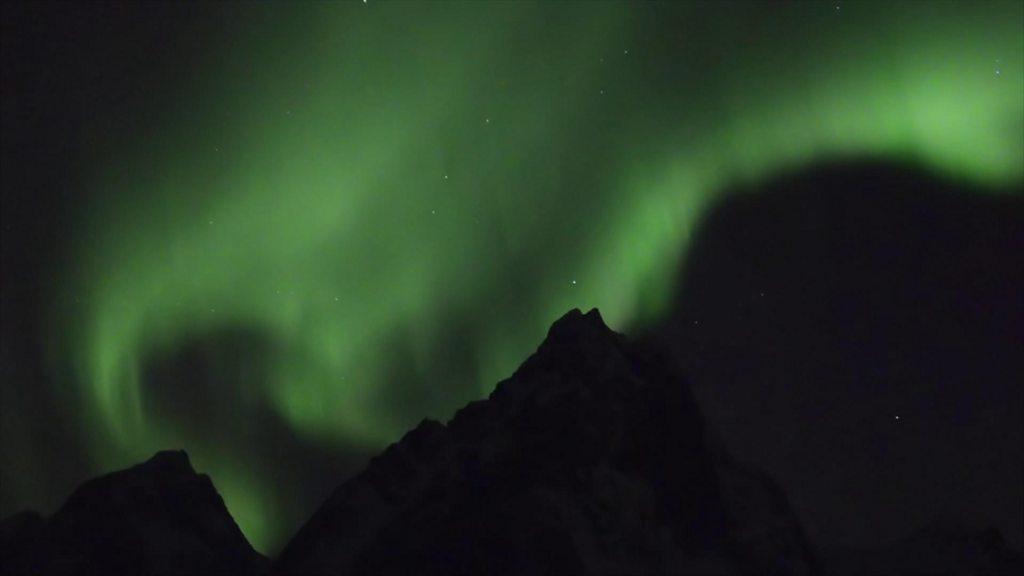'Steve' lights up the UK night sky
- Published
- comments
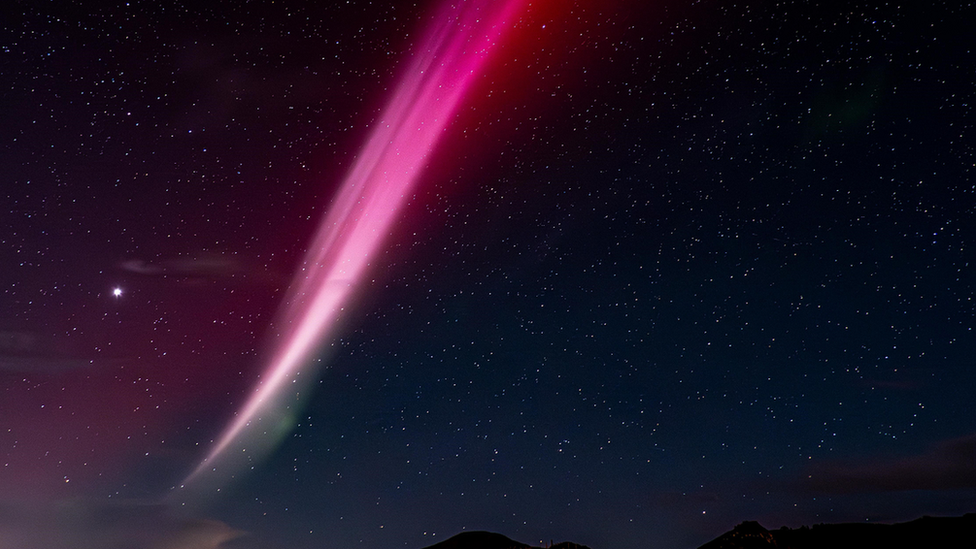
Steve seen in the skies over Argyll
Did you spot Steve in the sky on Sunday night?
Steve isn't a person, but rather a mysterious purple space phenomenon.
Its full name is Strong Thermal Emission Velocity Enhancement - Steve for short - and is sometimes seen during displays of the Aurora Borealis.
BBC Weather Watchers sent in photos of Steve when they spotted it above north-eastern parts of England and Scotland.
The thin purple ribbon, glowing almost vertically in the sky, is a relatively new scientific discovery.
US space agency, Nasa, is currently running a project asking the public to log sightings of Steve in order to find out more about it.
If you cannot see this gif, click here.
One thing researchers do know is that Steve is not a normal aurora - in fact it may not be an aurora at all.
Nasa said: "What's creating these long glowing streaks in the sky? No one is sure.
"These luminous light-purple sky ribbons may resemble regular auroras, but recent research reveals significant differences."
On Sunday night the aurora borealis - a better-known phenomenon - was seen across the UK.
Citizen scientists are the ones who brought the STEVE phenomenon to the scientists' attention.
Why is it called Steve?
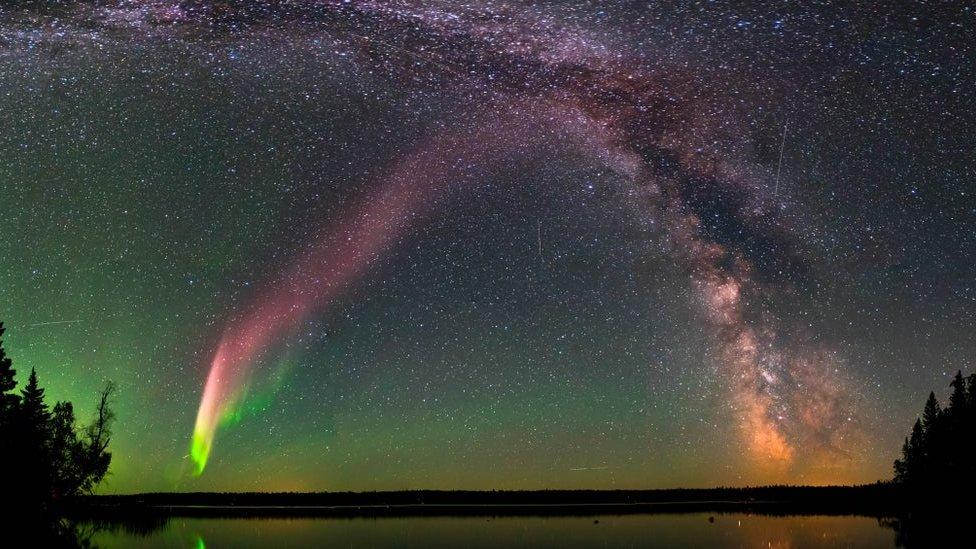
Aurora watchers named the purple, sometimes green light Steve - apparently after watching the animated film, Over the Hedge.
In the film a group of animals awake from hibernation to discover a new phenomenon to them - a garden hedge.
"What is this thing?" one creature says.
"I'd be a lot less afraid of it if I just knew what it was called," another says, before a squirrel recommends calling it Steve.
"I'm a lot less scared of Steve," another animal replies.
Later on scientists changed the name into an acronym, so it now stands for Strong Thermal Emission Velocity Enhancement.
What is Steve?
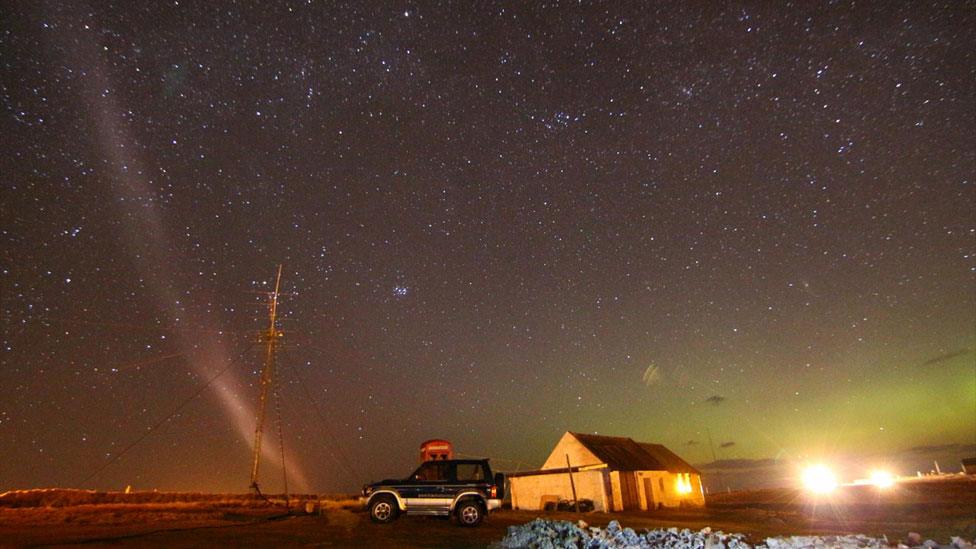
Steve photographed from the Isle of Lewis
Nasa describes Steve as a very narrow arc, aligned east-west extending for hundreds or thousands of miles.
It mostly emits light in purple hues and can last for up to an hour, sometimes accompanied by "a rapidly evolving green picket fence-like" aurora.
Nasa says Steve's purple emissions are likely a result of ions - atoms with electrical charges - moving at supersonic speed.
Where as the green is reportedly caused by slower movement. "The green emissions seem to be related to eddies, like the ones you might see forming in a river, moving more slowly than the other water around it," it added.
- Published30 July 2015
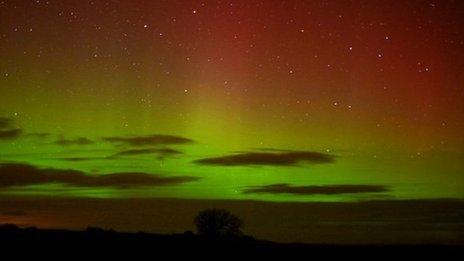
- Published10 June 2021
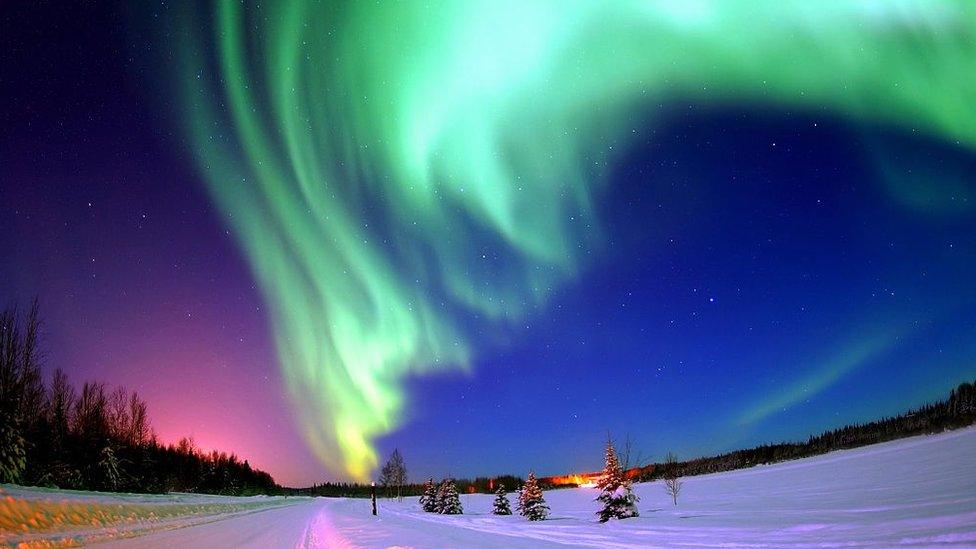
- Published30 May 2023
